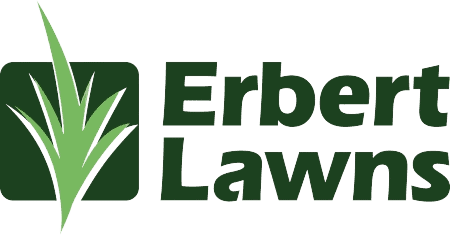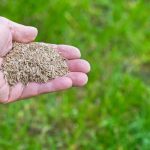Maintaining a pristine lawn is a point of pride for many homeowners, but weeds can quickly transform a manicured landscape into a gardener’s nightmare. These unwelcome guests not only detract from your lawn’s beauty but also compete with grass for nutrients, water, and sunlight. At Erbert Lawns, we understand the challenges of maintaining a lush, weed-free lawn. Our comprehensive guide on Effective Weed Control Strategies will arm you with the knowledge and tools to effectively combat these pesky invaders, ensuring your lawn remains the envy of the neighborhood. In this article, we will delve into effective strategies to keep your lawn weed-free, emphasizing the importance of prevention, identification, and targeted treatment.
- Prevention: The First Line of Defense
- Identification and Targeted Treatment
- Sustainable Weed Control
- Timing: When to Tackle Weeds
- Cultural Practices for Weed Control
- Understanding Herbicide Selection
- Environmental Considerations
- Professional Weed Control Services
- Innovative Approaches to Weed Control
- Collaborating with Nature for Weed Control
- The Role of Education in Weed Control
- Balancing Aesthetics and Ecology
- Conclusion
- Frequently Asked Question
Prevention: The First Line of Defense
Preventing weed invasion is far more effective than dealing with an established infestation. Here’s how you can stop weeds before they start:
- Healthy Lawn Maintenance: A thick, healthy lawn is your best defense against weeds. Regular mowing, proper fertilization, and adequate watering encourage grass growth, leaving little room for weeds to establish.
- Soil Health: Improving soil health can significantly reduce weed growth. Aeration and proper fertilization create an environment where grass thrives but weeds do not.
- Mulching: In garden beds, mulch acts as a barrier, preventing weed seeds from receiving the sunlight they need to germinate.
Identification and Targeted Treatment
Identifying the type of weeds in your lawn is crucial for choosing the most effective treatment. Broadleaf weeds like dandelions require different methods than grassy weeds like crabgrass.
- Herbicides: Selective herbicides target specific weed types without harming your grass.
- Manual Removal: For smaller infestations, manual removal can be effective. Ensure you remove the entire root to prevent regrowth.
- Professional Assistance: Sometimes, the best approach is to seek professional help. Erbert Lawns offers customized weed control solutions tailored to your lawn’s specific needs.
Sustainable Weed Control
Embracing sustainable weed control methods not only maintains your lawn’s health but also protects the environment.
- Organic Herbicides: These natural alternatives are less harmful to the environment and are effective in controlling weeds.
- Integrated Pest Management (IPM): This approach combines various environmentally sensitive practices for effective weed control.
Timing: When to Tackle Weeds
Timing is critical in weed control. Understanding the life cycle of common weeds can help you determine the best time for intervention.
- Pre-Emergent Herbicides: These are applied before weeds germinate, usually in early spring. Learn about the best timing for application.
- Post-Emergent Herbicides: These are used once weeds have appeared. For best results, apply when weeds are actively growing. Understand the effectiveness of post-emergent herbicides.
Cultural Practices for Weed Control
Beyond chemicals, simple cultural practices can greatly reduce weed proliferation.
- Mowing Height: Keeping your lawn at the proper height can discourage weed growth.
- Overseeding: Introducing more grass seeds can help crowd out weeds.
- Watering Practices: Deep, infrequent watering encourages deep root growth in grass, making it more competitive against weeds. Explore our detailed watering guide page.
Understanding Herbicide Selection
Not all herbicides are created equal. Understanding their types and modes of action is crucial for effective weed control.
- Selective vs. Non-Selective: Selective herbicides target specific weeds, while non-selective herbicides kill all vegetation.
- Contact vs. Systemic: Contact herbicides kill only the plant parts they touch, whereas systemic herbicides are absorbed and move within the plant.
Environmental Considerations
Responsible weed control involves considering the environmental impact of your actions.
- Chemical Runoff: Herbicides can contaminate waterways, leading to adverse effects on aquatic life and water quality. The Environmental Protection Agency (EPA) provides guidelines on minimizing chemical runoff and promoting environmental sustainability.
- Wildlife Safety: Some herbicides can harm beneficial insects and wildlife, disrupting the delicate balance of local ecosystems.
- Organic Alternatives: Organic weed control methods are not only effective but also safer for the environment. They minimize harm to the ecosystem while keeping your lawn weed-free.
Professional Weed Control Services
While DIY methods can be effective, professional services offer expertise and convenience.
- Erbert Lawns Services: We provide a range of professional weed control services.
- Customized Treatment Plans: Every lawn is unique. We offer customized plans that cater to your specific lawn needs.
- Ongoing Maintenance and Support: Regular maintenance is key to keeping weeds at bay.
Innovative Approaches to Weed Control
The field of weed control is constantly evolving, with new methods and technologies emerging.
- Biological Control: Using natural weed predators or diseases can be an effective control method. Read about biological control.
- Technological Advancements: New tools and equipment make weed control more efficient and environmentally friendly.
Collaborating with Nature for Weed Control
Working in harmony with nature can yield surprising benefits in weed control.
- Companion Planting: Some plants naturally repel weeds and can be integrated into your lawn or garden.
- Natural Predators: Encouraging beneficial insects and animals that feed on weeds can be an effective control strategy.
- Organic Mulches: Organic mulches decompose over time, enriching the soil and suppressing weeds. Visit our blogfor more detailed information..
The Role of Education in Weed Control
Educating yourself about weeds and their control is a crucial step in maintaining a healthy lawn.
- Weed Identification Guides: Knowing your enemy is half the battle. Accurate weed identification guides are invaluable.
- Workshops and Seminars: Attending local workshops or seminars on lawn care and weed control can provide valuable insights.
- Online Resources and Communities: Online forums and resources offer a wealth of information and community support. For a robust online gardening community, visit GardenWeb, where you can connect with other gardening enthusiasts, share experiences, and gain insights into effective weed control.
Balancing Aesthetics and Ecology
Creating a balance between a beautiful lawn and a healthy ecosystem is vital.
- Eco-Friendly Lawn Alternatives: Consider eco-friendly alternatives that require less maintenance and are more resistant to weeds.
- Reducing Lawn Size: Reducing the size of your lawn by adding native plant gardens can reduce weed problems and support local ecology.
- Xeriscaping: This landscaping method uses drought-resistant plants to reduce the need for watering and weeding.
Conclusion
Weeds can be a daunting challenge, but with the right approach, your lawn can thrive weed-free. At Erbert Lawns, we are dedicated to providing you with the best solutions for weed control. Contact us today to learn how we can help you maintain a beautiful, healthy lawn.
Frequently Asked Question
Q1: What is the best time to apply weed control?
The best time varies depending on the type of weed and herbicide. Generally, early spring and fall are ideal.
Q2: Can I control weeds without chemicals?
Yes, there are several organic and manual methods for weed control.
Q3: How often should I mow my lawn to prevent weeds?
Regular mowing is essential. The frequency depends on your grass type and growth rate.
Q4: Is it necessary to hire a professional for weed control?
While DIY methods can be effective, professional services ensure thorough and long-lasting results. Learn more at Professional Weed Control.
Q5: Are weed control services safe for pets and children?
Safety is our top priority. We offer pet and child-friendly options.
Q6: What makes Erbert Lawns different in weed control?
Our tailored approach and commitment to customer satisfaction set us apart. Discover the Erbert Lawns difference at about us.











